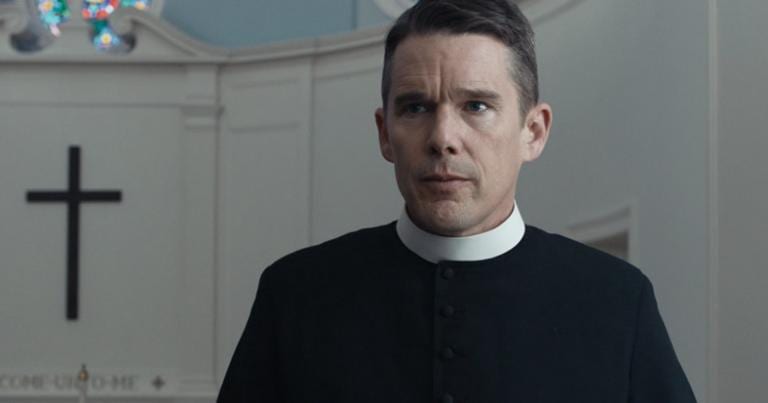
Oscar nominees were announced last week, and like always, they featured plenty of surprises, snubs and head-scratchers. Bradley Cooper wasn’t nominated for Best Director. Bohemian Rhapsody was nominated for Best Picture, despite critics collectively giving the flick a resounding “meh.” And what’s up with Vice, anyway?
But maybe the year’s biggest Oscars snub wasn’t an actor or director or even a movie. It’s faith.
Sure, some Oscar nominees had a spiritual undercurrent to them, and a few even made a nod or two to religion and faith. Black Panther had a bit of both, what with its scenes in an afterlife and its risen king. I’ve talked at length about Roma’s beautiful depiction of Christian-tinged servitude. And, um, Green Book featured a prayer or two at the dinner table.
But Oscar turned its back on some outstanding films that grappled with eternal truths and spiritual questions—films that truly stressed how important faith is to many, and how complex it can be.
Take a look at First Reformed, a difficult, sometimes scathing movie centered on a priest in physical, emotional and spiritual crisis. Two-time Oscar nominee Ethan Hawke played the priest, and his work here is considered by many to be his best ever. Indeed, he’s won several awards for it, including a Best Actor honor from the National Society of Film Critics. But Oscar thumbed its nose at Hawke’s riveting turn and ignored the film’s critical acclaim. It gave First Reformed a single nomination—for Paul Schrader’s original screenplay.
Then there’s A Quiet Place, the surprise box-office hit that boasts a 95% rating on Rotten Tomatoes. Though the film isn’t much more explicitly religious than Green Book, featuring a solitary prayer at dinner, I found it to be one of the most spiritually profound movies of the year. But while Emily Blunt took home a statuette as Best Supporting Actress from the Screen Actors’ Guild—a voting body that has historically been one of the most reliable predictors of Oscar glory—Blunt didn’t garner recognition from the Academy. A Quiet Place, like First Reformed, earned just a single nom, for Best Sound Editing. (Ironic, no?)
Perhaps the most disappointing misstep, though, was Oscar’s disregard of Won’t You Be My Neighbor?, a movie embraced by critics and moviegoers alike. Not only does it have a 98% “freshness” rating on RT, but in documentary terms it’s a bona fide blockbuster, earning $22.6 million in theaters. Moreover, the film explicitly dug into the faith of its subject, Fred Rogers—an ordained minister who saw Public Television as a pulpit and whose spirituality undergirded his life’s work. Neighbor was considered by many the odds-on favorite to win an Oscar for Best Feature Documentary. Instead, it wasn’t even nominated. And the cynic in me wonders whether Rogers’ gentle faith actually hurt the film with some voters, especially in a year where righteous anger was oh-so in.
Conversely, some of the films nominated were notable for their lack of faith content, despite plenty of opportunities to include it. Consider The Favourite, very much an Oscar favorite itself with 10 nominations. Historians don’t know (and many doubt) whether Queen Anne was a lesbian, as the film posits. But they do know that she was a fervent and devout Anglican. Set in an age in which being a Catholic or Protestant was still a very big thing, the almost near-absence of any religious mention at all is pretty remarkable.
Much has been made the last several years of Oscar’s lack of diversity over the last several years, and certainly it’s making strides in certain respects. Black Panther’s seven noms were well-deserved, and I don’t know if I’ve ever seen Oscar’s Best Actress and Best Supporting Actress categories so rich in excellent performances in dynamite movies.
But while people of different races, genders and sexual orientations were more prevalent in Oscar-honored flicks, Oscar’s depiction of faith (with a couple of exceptions) is surprisingly homogeneous: It just doesn’t matter.
Hollywood missed an opportunity to honor some deserving films that remind us what a huge number of Americans still know: Faith moves us, inspires us and even powers us in myriad ways—not always in good ways, necessarily, but always interesting ways. Spirituality is an incredible wellspring of narrative drive and tension that, this year, Oscar all but ignored.













